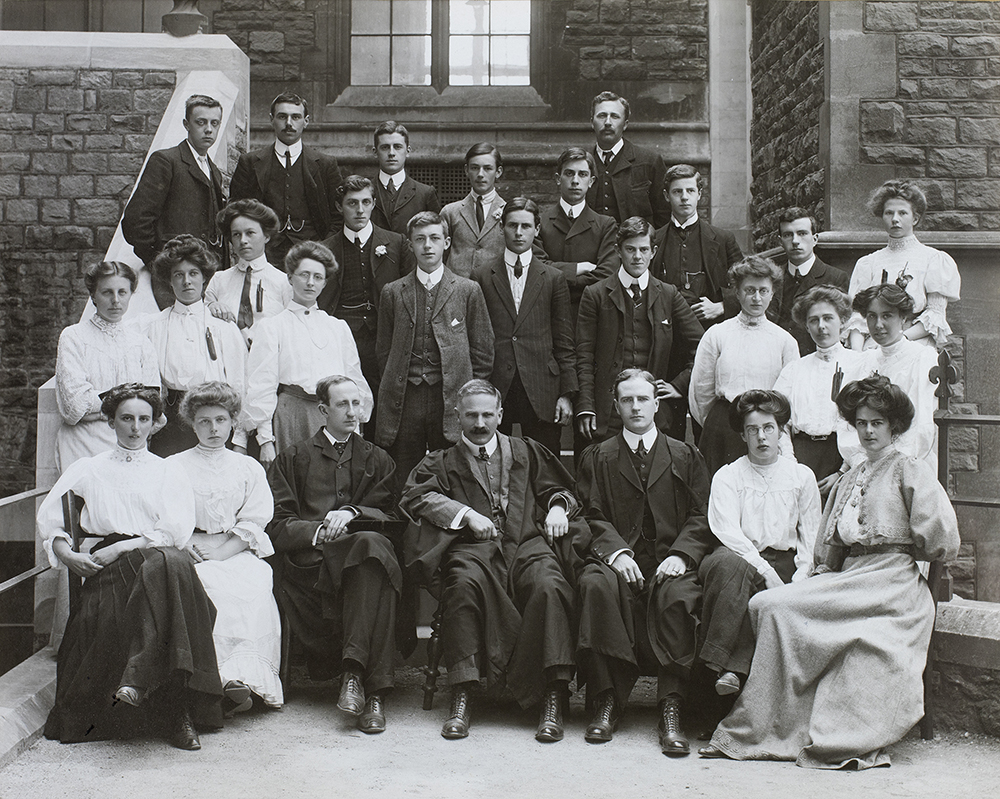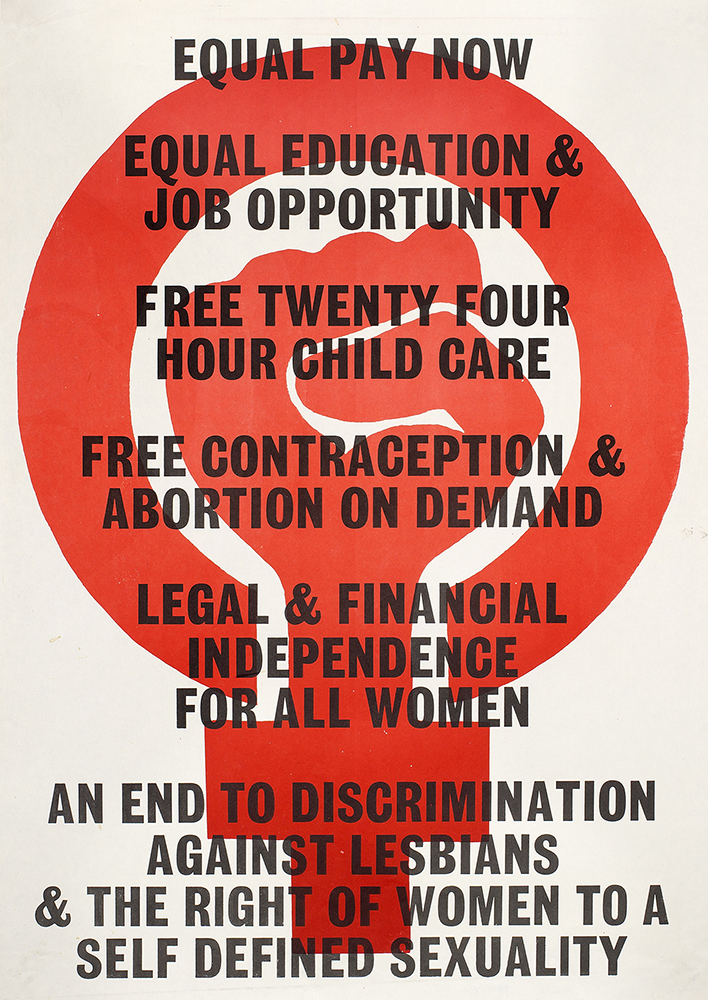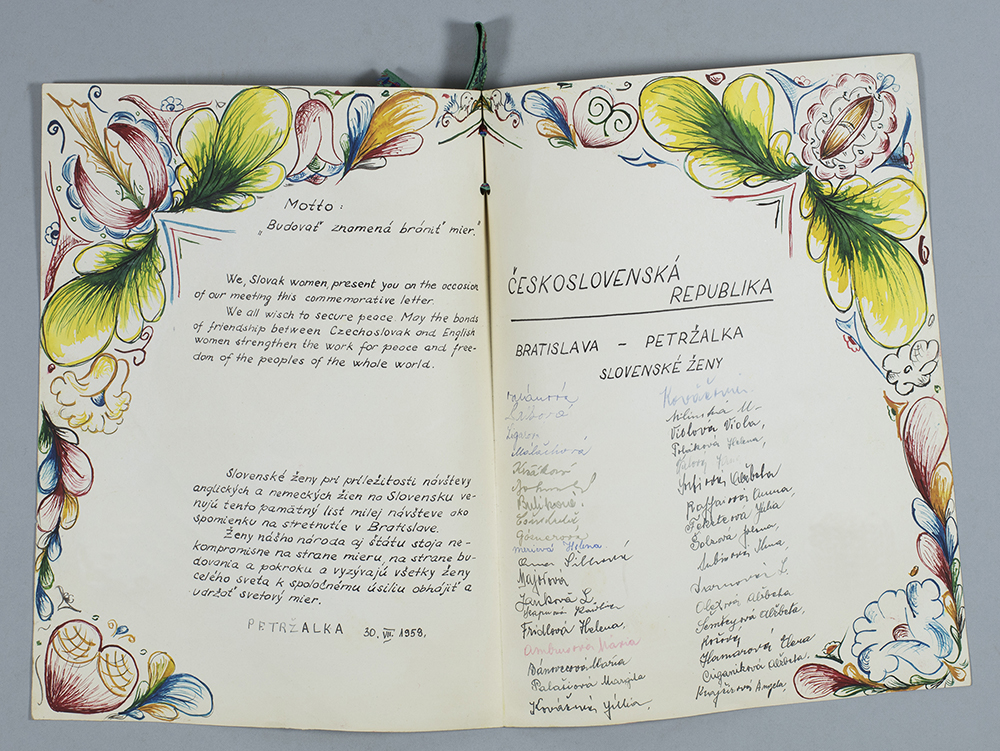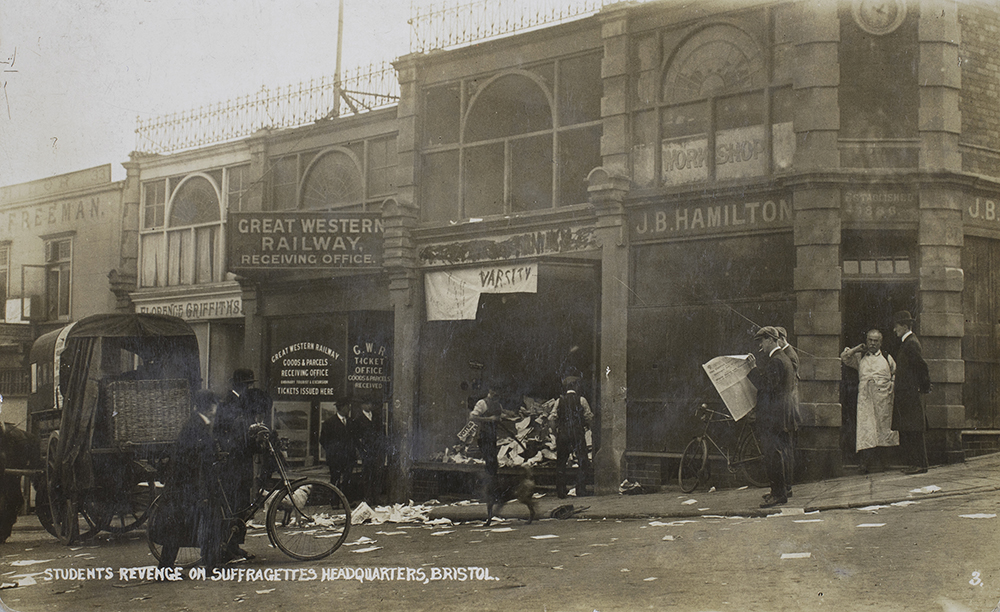6 February 2018 marks the centenary of legislation which allowed all women over 30 with a property qualification the right to vote. This vote also gave all men over 21 the right to vote. Many argued that this did not go far enough, and it wasn’t until 1928 that men and women could vote on an equal footing.
Special Collections, housed in the Arts and Social Sciences Library, and open to all, has such a wealth of materials relating to the politicisation of women, that we couldn’t miss the opportunity to celebrate this date.
Have a look at this website to see a copy of the 6 February 1918 Representation of the People Act, which is also available in the University of Bristol Library.
And this web page gives more of the story.
Our online archive catalogue is a good start for an explore as to what we hold.
Also, look at the Library book catalogue to discover gems such as:
Lucienne Boyce, The Bristol Suffragettes, Bristol, 2013 [available to borrow from ASSL].
Madge Dresser ed., Women and the city: Bristol 1373-2000, Bristol, 2016 [also available to borrow from ASSL].
University College Bristol was founded in 1876. The College could not award degrees itself, until it became the University of Bristol in 1909, but from the outset women were admitted as students on an equal footing as men.
We have evidence of the activities of female students, academics, and administrative staff including one of the first female Registrars Winifred Shapland; Marian F. Pease (1859-1954) who was one of the first women to enrol in University College Bristol; and early female professors such as Lilian Hawker, Professor of Mycology.
In the 1970s the University Library purchased the Library of the National Liberal Club. This includes a wealth of materials relating to General Elections and by-elections for the Westminster Parliament.
Our 1918 Election Address volume, for the 14 December 1918, includes the leaflets of five female candidates. Most candidates mention female suffrage.
Our election leaflets go up to 2018, so you can trace female candidates from all parties over the years.

Election address/leaflet for Mrs How Martyn, Hendon, Progressive Independent Candidate. General Election, December 1918.
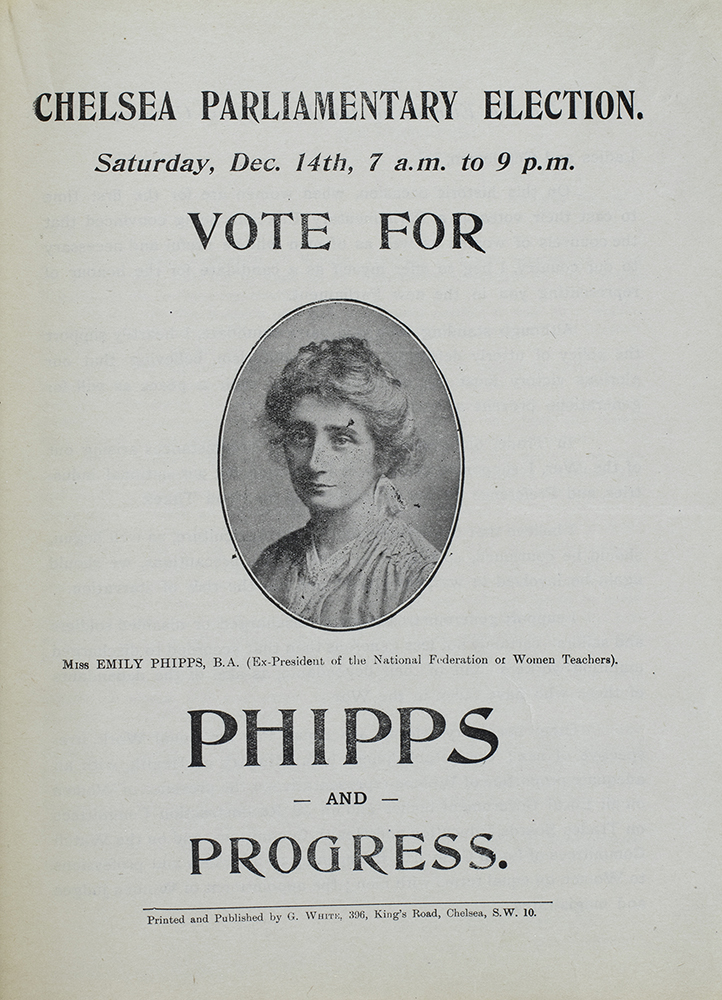
Election address/leaflet for Emily Phipps, Chelsea, Independent Candidate. General Election, December 1918.
We hold the papers of Jane Cobden Unwin (1851-1949), DM851, who stood and was elected with one other woman (Margaret Sandurst) as one of the first female County Councillors in the UK in Bow and Bromley in 1889, as Liberal candidates. Her papers also show her campaigning activities on behalf of the rights of indigenous people.
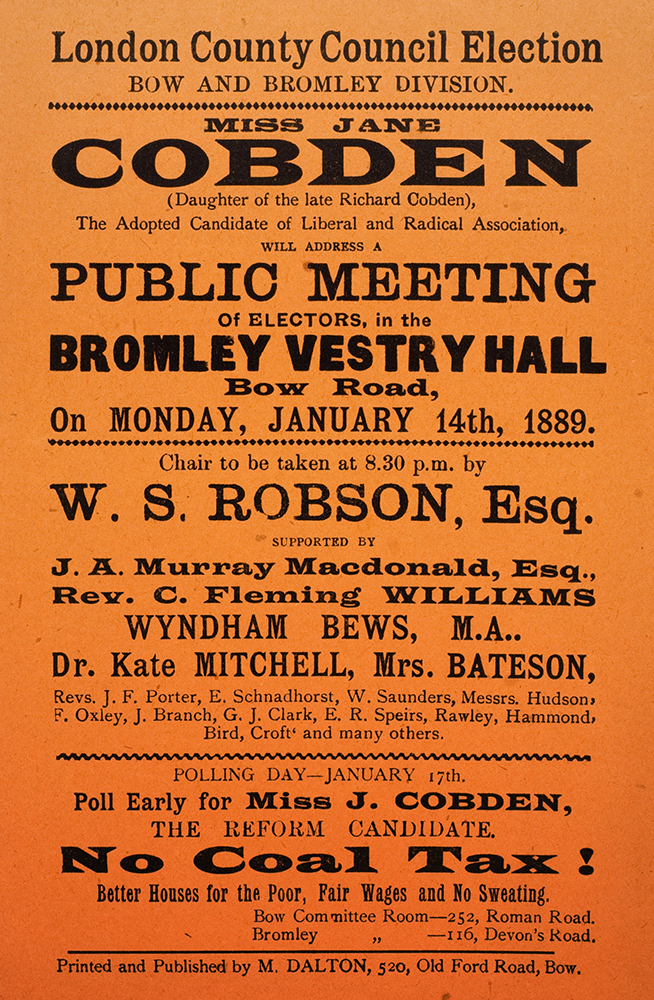
Poster for a public meeting addressed by Miss Jane Cobden. London County Council Elections, January 1889. DM851.
We hold extensive papers of the Women’s Liberal Federation, DM1193. Here you can follow debates within the Liberal Party concerning the enfranchisement of women, and the founding in 1913, of the Liberal Women’s Suffrage Union, which supported the cause of women’s suffrage within the Liberal Party.
A more recent arrival has been the papers of the Feminist Archive South, DM2123, which covers the women’s movement from c.1969-2000. The Feminist Archive South hits forty this year and has been held in Special Collections for ten years. A series of workshops are taking place this spring. If you want to see how women have campaigned and built on the vote from 1918 this is the place to go. Campaigns on all topics under the sun are covered.
There is some coverage of the Suffragette Movement in Bristol. In particular of an incident in October 1913, when University of Bristol students, angered after suffragettes had burned down the Coombe Dingle sports pavilion, attacked the Suffragettes’ headquarters on Queens Road, Bristol. This postcard (DM325) shows the aftermath of the activity.

